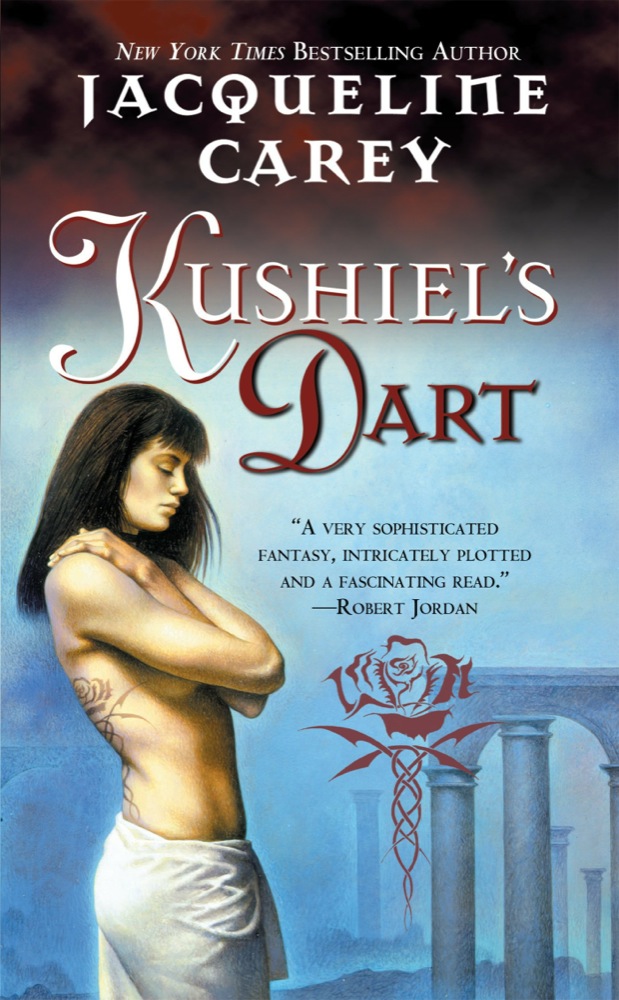
‘Kushiel’s Dart’ book review
By Caroline Ho, Arts Editor
Politics, prophecies, and prostitution—Kushiel’s Dart is a seductive and satisfying mix of it all.
The first book in Jacqueline Carey’s six-volume Kushiel’s Legacy series, Kushiel’s Dart, published in 2001, is a high fantasy novel set in the land of Terre d’Ange, a country with the motto “Love as thou wilt.” Phèdre nó Delaunay grows up in the Night Court—the world of courtesans openly and unashamedly patronized by the nobility and the wealthy. A bonded servant, she is bought and raised by the secretive lord, poet, and spymaster Anafiel Delaunay. Phèdre is an anguissette: She is cursed, or blessed, by the angel Kushiel to experience pain and sexual pleasure as the same sensation. This makes her highly sought after by some of the most important and powerful figures in Terre d’Ange, and she is able to uncover political secrets and treasonous plots that are only shared in bed.
Despite the protagonist being a highly-skilled courtesan and a masochist, this book did not come across as too sexual, and it is far more a high-politicking fantasy novel than a book just about sex. The sex scenes, though numerous, were surprisingly well-written: They were just explicit enough without being described too literally, but they also weren’t painfully flowery and metaphorical. Obviously a reader who finds sex scenes uncomfortable might not want to try picking this book up, but for someone who doesn’t mind a little BDSM—even if you’re not particularly fond of it—it’s not unpalatable.
That being said, this book reads a lot more like a political intrigue than a piece of smut, and Phèdre is a spy as much as a prostitute. The countries of this world directly parallel medieval Europe—Terre d’Ange occupies roughly the area of France—and although place names and some aspects of the religion are somewhat different, it’s similar enough to feel familiar quite early in the book. The politics, alliances, diplomatic relations, and motivations of characters are hard to follow, but in a good way. Relatively low amounts of fantasy are present; the plot features fortune-telling and the presence of gods, but for the most part the story is driven by very human forces.
The characters are generally quite believable, and believably flawed. My one complaint is that almost everyone is described as beautiful. It makes sense in the context of the story, because the people of Terre d’Ange are literally descended from angels, but still, it gets a little tiring to read, again and again, that a character is physically attractive simply by virtue of being d’Angeline. It isn’t completely intolerable, but it is a little eye-roll-inducing.
One particularly refreshing thing about this novel is its take on sexuality—women sleep with women, men sleep with men, people fall in love indiscriminately, and it is accepted as entirely normal. There are no terms or connotations about any kinds of sexual orientation. A lot of fantasy novels take place in heteronormative worlds where other preferences are, if not taboo, then at least associated with some negativity, but in Carey’s Terre d’Ange there seems to be no social stigma around sexuality and love.
Overall, I found it a fairly enjoyable read. I would not have expected to be so compelled by a novel starring a masochist prostitute, but between the well-crafted prose, the intricate politics, and the believable mythology, it was surprisingly sympathetic. I haven’t yet read the rest of the series, but I certainly plan to pick them up, because the first novel has a lot of promise.

